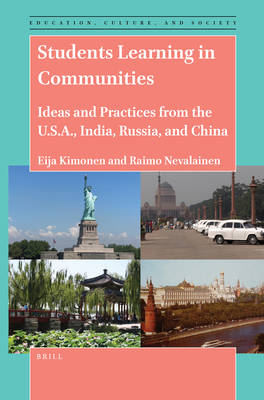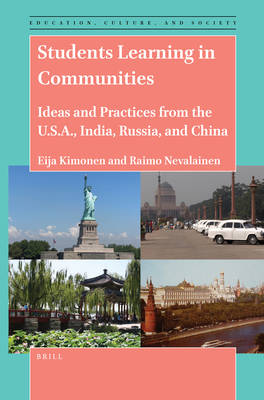
- Afhalen na 1 uur in een winkel met voorraad
- Gratis thuislevering in België vanaf € 30
- Ruim aanbod met 7 miljoen producten
- Afhalen na 1 uur in een winkel met voorraad
- Gratis thuislevering in België vanaf € 30
- Ruim aanbod met 7 miljoen producten
Zoeken
Students Learning in Communities
Ideas and Practices from the U.S.A., India, Russia, and China
Eija Kimonen, Raimo Nevalainen
€ 87,45
+ 174 punten
Uitvoering
Omschrijving
This book examines the interplay between education and society in the 20th and early 21st centuries and addresses philosophical views and educational aims with their associated values for community-based learning in the U.S.A., India, Russia, and China. The philosophical background of community-based learning in these countries relies both on national philosophical traditions and on reformist ideas in international schools of thought--over time opposition to certain international pedagogical ideas surfaced in these countries.
The authors offer a comprehensive picture of community-based learning in education and demonstrate how teachers can make learning more functional and holistic so that students can work in new situations within their complex worlds. School-specific descriptions reveal how teachers and students implemented community-based projects at different times.
The authors offer a comprehensive picture of community-based learning in education and demonstrate how teachers can make learning more functional and holistic so that students can work in new situations within their complex worlds. School-specific descriptions reveal how teachers and students implemented community-based projects at different times.
Specificaties
Betrokkenen
- Auteur(s):
- Uitgeverij:
Inhoud
- Aantal bladzijden:
- 328
- Taal:
- Engels
- Reeks:
- Reeksnummer:
- nr. 4
Eigenschappen
- Productcode (EAN):
- 9789004517769
- Verschijningsdatum:
- 7/04/2022
- Uitvoering:
- Paperback
- Formaat:
- Trade paperback (VS)
- Afmetingen:
- 155 mm x 235 mm

Alleen bij Standaard Boekhandel
+ 174 punten op je klantenkaart van Standaard Boekhandel
Beoordelingen
We publiceren alleen reviews die voldoen aan de voorwaarden voor reviews. Bekijk onze voorwaarden voor reviews.











